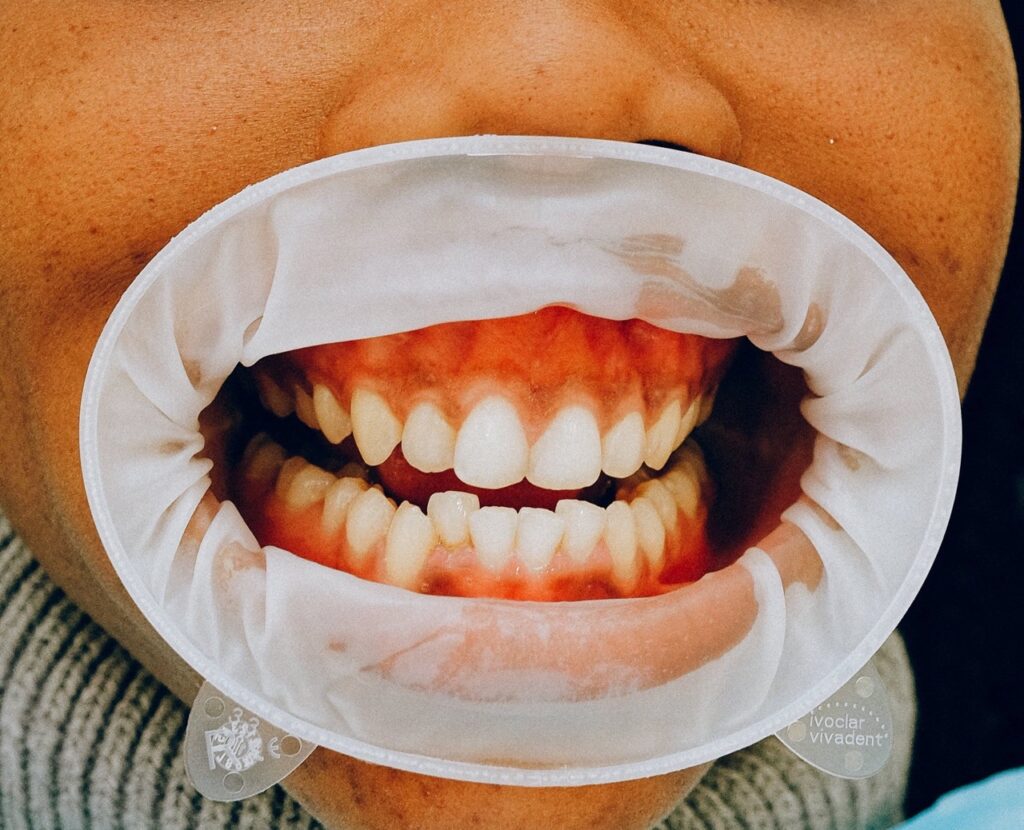Wellness
What Does Teeth Whitening Do To Cavities?
A lot of people get their teeth whitened to make their smiles look better and make them feel better about their looks. There is a lot of misunderstanding, though, about whether teeth whitening is safe for people with cavities. In this article, we’ll look into the link between teeth whitening and cavities, including the risks and how important it is to take care of your teeth before starting a whitening process.
The Impact of Cavities on Teeth Whitening
The short answer is that you should never whiten your teeth if they have gaps or decay. Bleach ingredients in teeth-whitening products can get into cavities and cause a lot of pain, sensitivity, and even damage. Because of this, it is very important to take care of any gaps before thinking about any kind of teeth-whitening treatment.
When cavities are present, the teeth’s structure is weaker, which makes them more likely to get more cavities and damage. If you whiten your teeth without fixing the cavities, these problems could get worse, which could lead to an infection or even tooth loss. Because of this, it is important to treat cavities first before getting any cosmetic dental work done.

Importance of Treating Cavities Before Teeth Whitening
There are several important reasons why you must treat cavities before getting your teeth whitened. Taking care of cavities first helps restore the teeth’s health and integrity, making them better able to handle the bleaching agents used during the process. So there is less chance of pain, sensitivity, and more damage.
Second, if you treat cavities first, you can get rid of possible infection sources and stop decay from spreading to nearby teeth. Not only does this improve mouth health, but it also sets the stage for good teeth whitening results.
Types of Teeth Whitening Treatments
You can whiten your teeth in a number of different ways, and each has its own pros and cons. It is important to talk to a dentist to figure out which choice will work best for your needs. Some popular ways to whiten teeth are listed below:
In-Office Whitening
Professional whitening, which is also known as in-office whitening, is thought to be the best choice. A high concentration of bleaching agents is put on the teeth during this treatment, which is done under the guidance of a dentist. The process usually takes an hour, and after just one session, you may notice a big difference in how white your teeth look.
Take-Home Kits
Take-home whitening kits are also popular because they are easy to use and give you options. In this method, the dentist gives you custom-made trays that are filled with bleaching agents that have a smaller concentration. The person wears these trays for a certain amount of time, normally a few hours every day or overnight, until they reach the level of whiteness they want.
Over-the-Counter Products
You can easily find over-the-counter goods like whitening toothpaste and strips that you can use at home without the help of a dentist. It’s important to keep in mind, though, that these items don’t work as well as professional treatments and might not give you the results you want.

Tips for Maintaining Whitened Teeth
Right after getting your teeth whitened, it’s important to take care of your mouth properly so that your new smile stays bright. Here are some ways to keep your teeth white:
- Use fluoride toothpaste to brush your teeth twice a day to get rid of surface spots and plaque buildup.
- Always floss to get rid of food stuck between your teeth and keep your mouth clean.
- Don’t eat or drink things like coffee, tea, red wine, and dark-colored nuts that are known to stain teeth.
- If you want to avoid direct touch with drinks that might stain your teeth, use a straw.
- For the best oral health, see your dentist regularly for checkups and professional cleanings. If you have any worries, you should take care of them right away.
Keep these tips in mind and practice good oral care to get whiter teeth that last longer and a smile that makes you feel better about your appearance.

Consultation with a Dental Professional
It is very important to talk to a dentist before starting any teeth-whitening process. The dentist will look at your teeth to see how healthy they are generally, find any cavities or decay, and tell you what to do next.
During the appointment, the dentist may also talk about other treatments that could work if teeth whitening doesn’t work for you. For instance, people who have a lot of dental work, like crowns or bridges, might not see much of a difference in how white their teeth are after using traditional ways.
Conclusion
I feel excited and responsible about teeth whitening. Having a brighter smile and more confidence is enticing, but oral health is the foundation for any cosmetic endeavor.
The idea of treating cavities before whitening teeth emphasizes the necessity of holistic oral care. It reminds us that aesthetic enhancements should boost health. This balance between beauty goals and health requires careful dental procedures.
Consult a dentist and following their advice becomes a guide. Trusting in their knowledge ensures a safer, more effective teeth-whitening technique and a healthier, brighter smile beyond appearances.
Good oral hygiene and regular dental exams are the foundation for white teeth and oral health, emphasizing preventive dental treatment. It promotes proactive oral health, emphasizing the need for persistent practices and professional care.
This article shows that achieving a brighter smile involves both cosmetic goals and health concerns. It promotes a balanced approach that balances esthetic enhancement with dental health through regular care and professional coaching. Making a dentist appointment is a proactive investment in a brighter, healthier smile.


